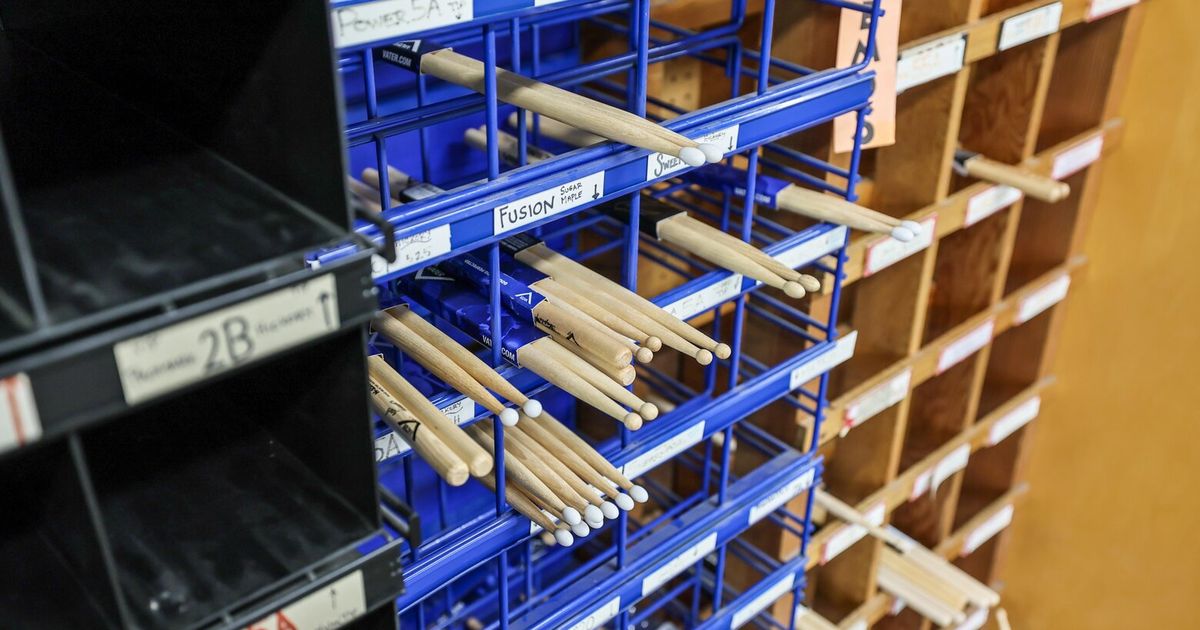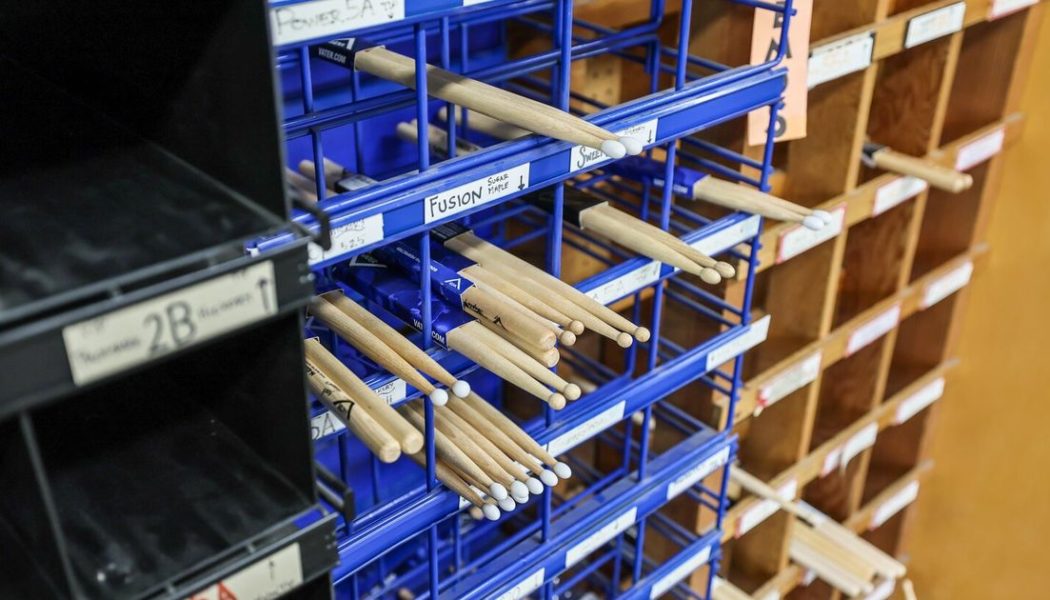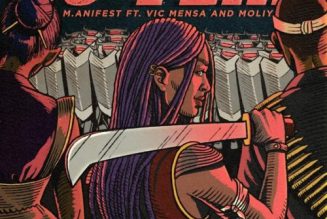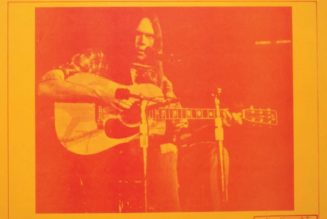
One day last week a woman called The Trading Musician with some questions about mandolins.
John Herman, the manager, who’s worked at the University District music store for nearly half of its three-decade life, answered the phone.
How much does a mandolin go for, she wanted to know. How’s it compare to a guitar? Or a ukulele? Is it a tinkerable instrument?
They talked for about five minutes. Herman answered her questions. OK, she said, what do you have available? And that’s when Herman told her they have nothing available, and that the 33-year-old Seattle institution is closing this week. It has no instruments left, just an assortment of parts, pieces and gear.
“Oh my God, I’m sorry,” the woman said, “I wasted all your time.”
“But I didn’t see it as wasting time, you know,” Herman said. “I’m like, that’s what this place is about, it’s helping people find what they need.”
For a third of a century, The Trading Musician has sold kids their first instruments and sold professional musicians vintage guitars. It’s offered quick repairs for touring acts, and offered cash, trades and layaway for bands who just gotta make it to the next gig.
For a city in the midst of a perpetual identity crisis, constantly reinventing itself, the store’s closure is another in a long line of shuttered institutions — Hardwick’s, the Elephant Car Wash, Mutual Fish Co. — another mini-elegy, marking Seattle’s transformation from a grungy, quirky fishing outpost to a wealthy tech metropolis.
The Trading Musician has provided day jobs for generations of Seattle musicians and, through it all, served as a hub of the local music community, somewhere young musicians could go to meet people, get advice, talk shop or just hang out.
Geoff Joynes started hanging out at The Trading Musician when he was 15. He’d skip class at Ballard High, ride the bus over and stay all day, talking with people, jamming on guitars. He was thrown out a few times for jamming too loud or “doing goofy 15-, 16-year-old high schooler” stuff. But he kept coming back and, eventually, began working at the shop.
“It’s kind of an everyman’s store,” said Joynes, 31. The store’s sweet spot, for years, has been not the cheapest, entry-level stuff, and not collector’s-item showpieces, but refurbished used gear; quality, workmanlike instruments that its employees have given new life. “For affordable used instruments, it’s kind of the last place where you’re able to find something that somebody has loved and pass it along.”
“There’s always kind of like a record store vibe in here, too, you know, it’s not corporate-feeling,” Joynes said. “It’s just history, kind of like old-school Seattle, grungy, like a silhouette of the ’90s.”
Robin Bartlett-Smith, co-founder and the longtime owner of The Trading Musician, is retiring. She said she tried to find a buyer for the building who could keep the business running, but nothing worked out.
“I’m getting old and I’m tired, so it’s time for me to go,” said Bartlett-Smith, 65. “It will be a loss to the community and my hope is that maybe somebody will come along and open up a store like mine in the future, but I don’t know.”
The building sold last month for about $1.6 million to the Friendship Circle of Washington, the local branch of a national mentoring organization that provides services to kids with special needs.
Bartlett-Smith started the business in 1991 with her then-husband. They were new to the Seattle area, having just moved here from Santa Cruz, Calif., where a small music store they owned had closed.
“I’m the business person, he’s the musician,” she said.
“We had very, very little, almost nothing, and a baby in hand,” she said, of starting the store. “We scraped by but became pretty successful pretty fast.”
Bartlett-Smith ticks off the musicians who have come in over the years: “All the guys from Pearl Jam, all the guys from Soundgarden. Kurt Cobain sent his guitar tech in to shop for him. Macklemore was in not very long ago.”
Brandi Carlile used to come in a bunch. Billy Gibbons, lead guitar and singer for ZZ Top, once gave a kid an impromptu guitar lesson in the shop.
She has another list, too. Jason McGerr, the drummer for Death Cab for Cutie, “he used to work for me.” Sean Lane, the current drummer for Heart, “he used to work for me.”
Everyone who worked at The Trading Musician was a musician. It was the rare type of job, where you could leave for six weeks if your band was touring and still have a job, and income, when you got back.
Kevin Murphy, lead singer of local bands The Moondoggies and Small Paul, bought his first good guitar, an Epiphone Les Paul, at The Trading Musician.
It was around 2008, and The Moondoggies, after years of playing small bars and house parties, had just booked Sasquatch, the erstwhile festival at The Gorge.
“I always had junker guitars so when I realized people were actually listening, I realized I should get decent gear,” Murphy said.
The band was renting a house in Wedgwood around that time. One night, after they played a gig, their place got broken into. Someone stole a couple guitars, including a pretty rare SG Gibson, and a bunch of other equipment.
Murphy called The Trading Musician, which was nearby, and asked if they could keep an eye out.
When someone brought in an SG Gibson to sell, the store made a note of it. When the same person came back a couple days later with another guitar, the employees knew something was wrong.
“Somebody who works there was like, ‘OK, we’re going to stall this guy,’” Murphy recalled. The employee called Murphy’s bandmate to get a better description of the stolen gear. Then the employee called the police.
But the stalling didn’t quite work, the guy picked up on it.
“The guy makes a run for it and this worker tackles him and so we got our guitars back,” Murphy said. “And I just love him for it — there’s this kind of camaraderie when you’re stealing from a fellow musician, we’re all broke.”
The band bought the employee a case of beer.
“It’s that kind of shop,” Murphy said.
Brent Carpenter, who owns Georgetown Music in Burien, bought his first guitars from The Trading Musician, in the early ’90s, a couple of Charvels, “little inexpensive metal shredders.”
He described The Trading Musician as almost like a cafe or a salon for musicians.
“They provided the community with a little bit of a sounding board, a place to get free information that’s sometimes a little tricky to find — even with the internet,” Carpenter said. “If your amplifier is making a weird sound, maybe they can help you identify its problem, or give you a remedy, or guide you in a different direction.”
Steve Lykken worked at the store for 13 years, and ran the upstairs drum shop where he was the in-house expert for drum repairs.
“We want to get people in and out the door, back to their gigs, back to practicing,” Lykken said. “Musicians work here and we know how to do things and help out other people, I guess, you know. It’s more a sense of ‘We’re all in this together.’ “
He’s planning on heading out on the road now, looking for work as a drum tech with a touring band.
“I don’t know,” Lykken said. “For me this place was very much a home, it’s kind of more of a home than a home has ever been, you know?“
The store didn’t just sell guitars and drums. The weird, the esoteric, the rare, you could find it at The Trading Musician.
“An erhu, a sitar, a balalaika,” said Herman, the manager. “You name it, if it’s a musical instrument, we would take it and we would sell it.”
They “just had so much cool stuff,” said Jeff Albertson, bass player for the 2000s era indie band The Lights (and now a Seattle Times news producer). “You never knew what might be on the shelf there or who you might meet.”
The store’s last day in business is Friday, though there’s little left to sell. Shelves are for sale, so are display cases.
The tools and equipment used to repair thousands and thousands of instruments over the years are now all for sale — chisels, wrenches, drill bits, varnish, lacquer, mineral spirits, wood glue. A dollar each, everything must go.
Spare parts for instruments of all sorts — capos, pick guards, cello tuning pegs, drum hoops, saxophone reeds and ligatures.
The store sold its final stringed instrument on May 19 — $75 for a Washburn mandolin. Joynes, who made the last sale, drew up a custom receipt with a doodle and caption: “It’s been real y’all. Will the last person in Seattle turn the amps off.”









